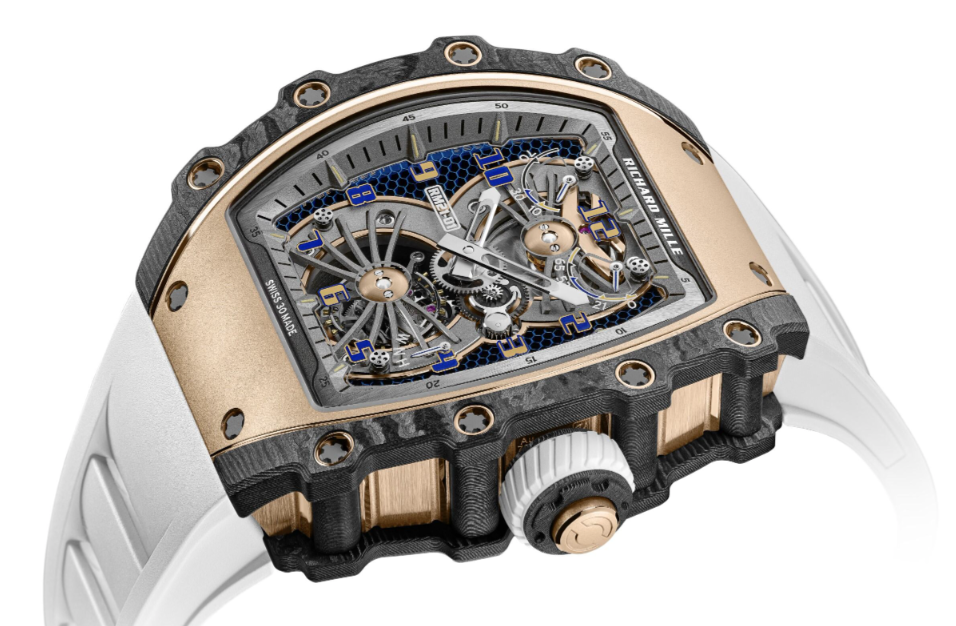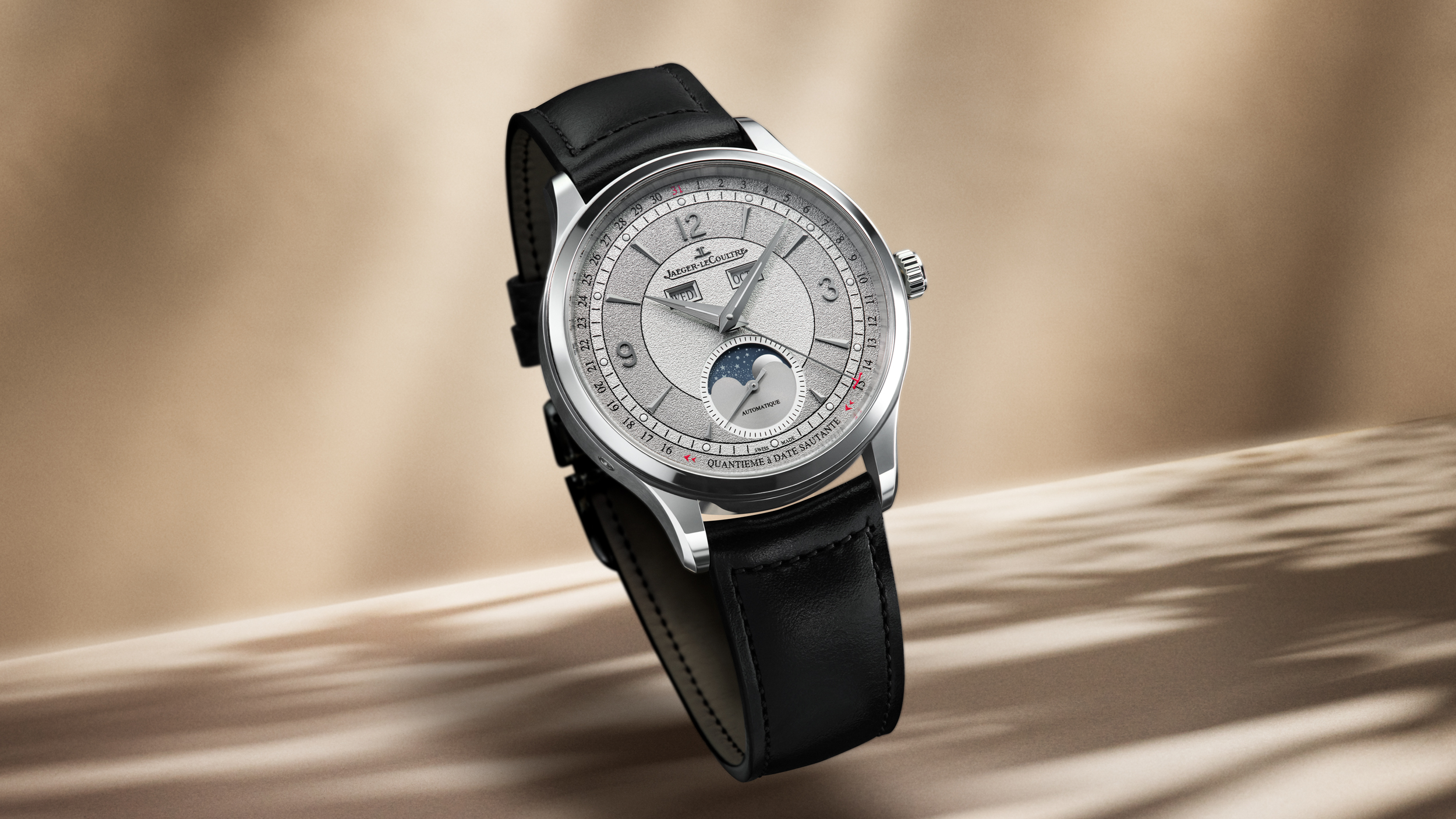Richard Mille pushes the boundaries of innovation and technology, setting new standards in everything from components to case construction
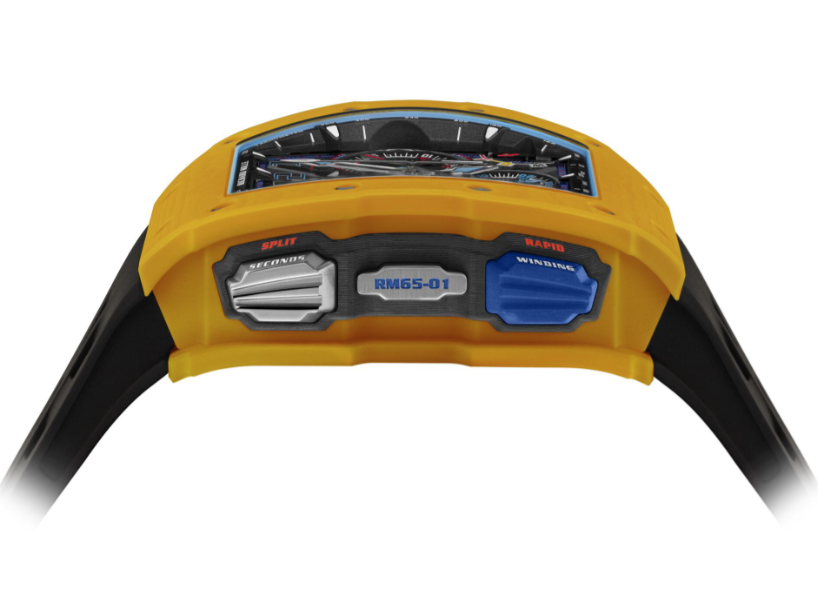
The RM 65-01 Split-Seconds Chronograph, for example, is the most complex automatic chronograph watch, featuring a sophisticated split-second chronograph complication that allows timing of two events simultaneously. Its RMAC4 calibre uses a column wheel-controlled split-second mechanism with over 600 components – including 480 for the movement alone – optimising the chronograph’s operation and precision.

It took five years of development to create the RM 65-01 designed for competition, including Richard Mille’s first in-house patented rapid- winding mechanism, activated by a pusher at 8 o’clock. It was developed in addition to the automatic winding and winding with the crown. It allows the barrel to be quickly rearmed in the event the watch stops. The rapid winding is very practical, but was difficult to develop given its direct transfer of torque at high levels, and required long hours of optimisation, in particular to validate the function, which was activated thousands of times during ageing tests. The RM 65-01 also has a function selector that enables the wearer to switch quickly from traditional winding mode (W) to setting the semi-instantaneous date (D) or the hours and minutes (H).
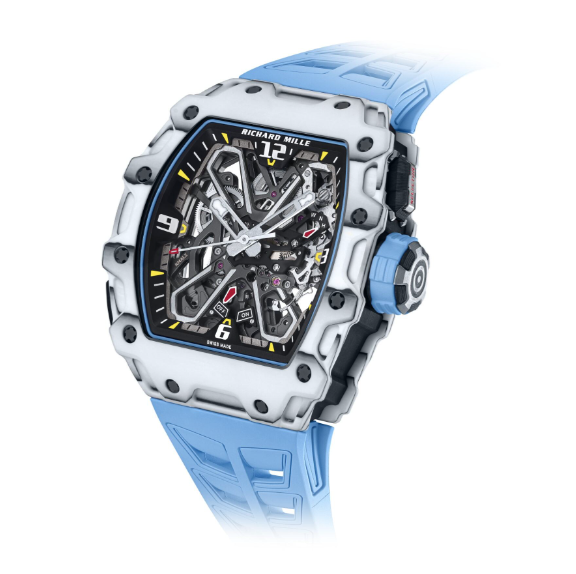
Showcasing a groundbreaking movement, the RM 35-03 Automatic Rafael Nadal is the fourth watch in the RM 035 collection and the first Richard Mille watch to feature a new winding mechanism christened the “butterfly rotor”. The patented invention allows the wearer to directly interact with the rotor’s geometry, controlling the movement’s winding speed based on lifestyle and activity levels, for a complication that is playful and practical in equal measure. “Previously, any modification of the rotor’s geometry needed to be done by one of our licensed watchmakers. We have perfected this system and given wearers the possibility of directly acting on the watch’s winding speed,” explains Salvador Arbona, Richard Mille’s Technical Director for Movements. “It’s like a driver being able to adjust the transmission style from city use to racetrack by activating the sports mode.”
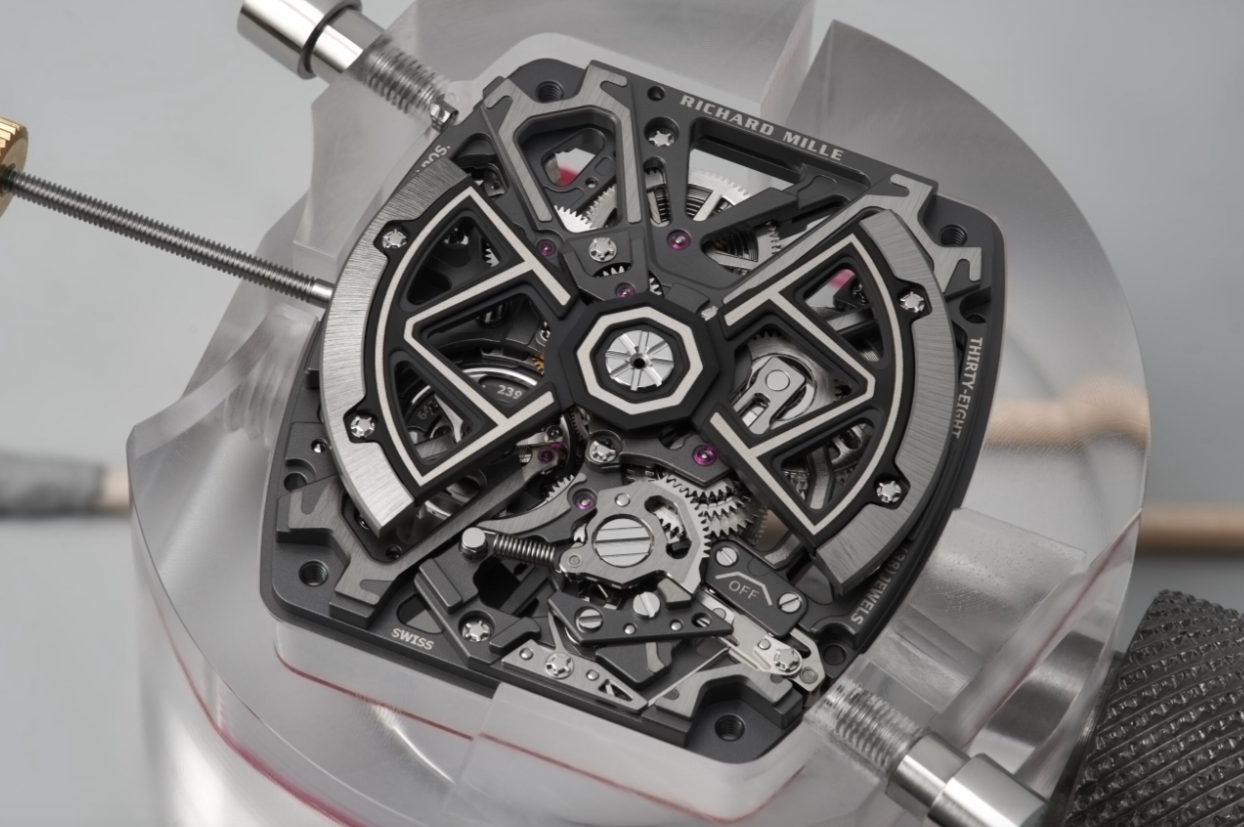
The RM 35-03 is an engineering marvel, featuring an ‘ON/OFF’ indicator. The movement’s winding mechanism can be optimised on demand. An indicator located at 6 o’clock lets the user know whether the rotor is working (ON) or disengaged (OFF). In ON mode, the rotor is engaged with the mechanism and winds the barrel. In OFF mode, the two weights are uncoupled and the rotor is no longer active.
The RM 35-03 required three years of development, including the time required for the purely technical development of the mechanism and overcoming the difficulty of incorporating an additional gear train into the movement, plus the time to ensure the reliability of a mechanism. Inspired by the RM 027 Tourbillon watches worn by Rafa Nadal on the tennis courts, it was designed as a concentration of innovative engineering at the service of performance and those who deliver it.

Of course, Richard Mille watches stand apart not only for their precision and technicity but also for their ultra-technical materials and painstaking construction. The RM 21-01 Tourbillon Aerodyne is just one example of a complex case structure, in this case made of 5N red gold reinforced with an exoskeleton in Carbon TPT used for the bezel and pillars. This extremely light and durable composite is made by stacking hundreds of layers of carbon fibres thanks to an automated process that rotates 45° between each layer, then heats the material to 120C in an autoclave before being machined to the nearest micron.
Carbon TPT is found at the heart of the baseplate, this time combined with an orthorhombic honeycomb structure embodying the concept of air itself and made of Haynes 214 with a blue PVD treatment. The RM 21-01’s baseplate therefore offers unsurpassed stiffness, an extremely low thermal expansion coefficient and exceptional torque resistance, all essential prerequisites for a Richard Mille watch. Because it would be impossible to design watches capable of resisting extreme conditions without using constituents that were themselves created to handle punishing demands.
Also see: Richard Mille: Ahead of its time



